
The last day of 3DEXPERIENCE World had a huge focus on SOLIDWORKS’ large and passionate community, putting a spotlight on connections and relationships.
Users came together to share thoughts and ideas about how technology can be used in the future.
Suchit Jain, vice president of Strategy and Business Development at Dassault Systems SOLIDWORKS, spoke of the rapidly growing SOLIDWORKS user ecosystem, 6 million+ designers, engineers, students, entrepreneurs, makers – all designing and making many of the things we see around us.
Suchit highlighted how we are more connected than ever, sharing collective ideas and technology-driven visions for purposeful causes.
The stories shared in the General Session on Day 3 of 3DEXPERIENCE World explored what is possible, reinforcing the importance of widening the boundaries of technology.
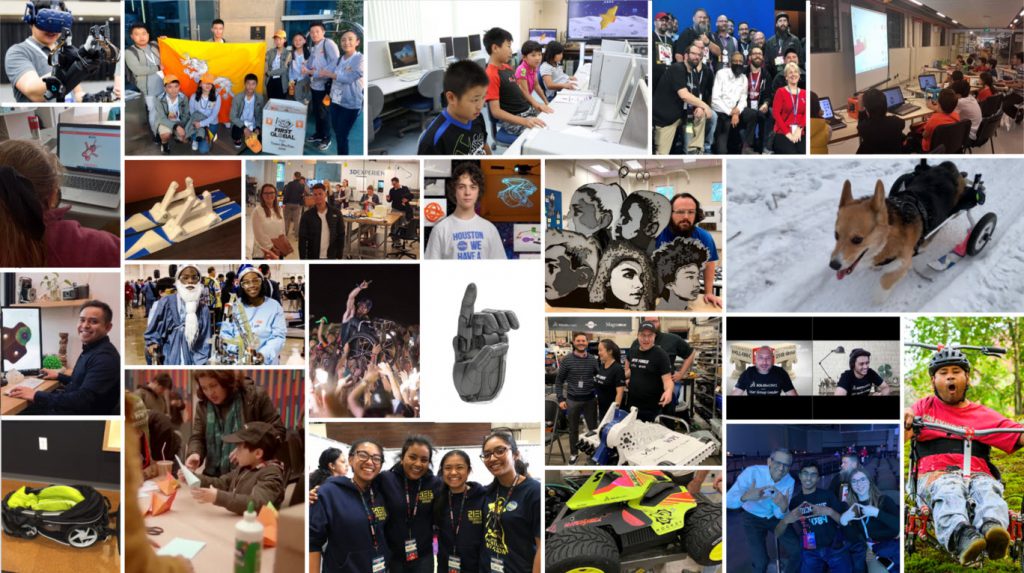
The Future of Technology
In this session teachers, students, scientists and futurists came together to use imagination to co-create the future of technology. Their predictions for what technology will look like in 2100 were:
- Machines that become creature-like and have the ability to adapt instantly, solving some of our most complicated problems.
- Rather than be manufactured, machines will be grown.
- The most noticeable changes in the technology industry will come in the forms of further development of automation, and understanding human speech.
- Although the development of machines will be a lot smarter, some think that there are principles that won’t change, like the way we build them, going on to explain that they think that they will still be designed in SOLIDWORKS.
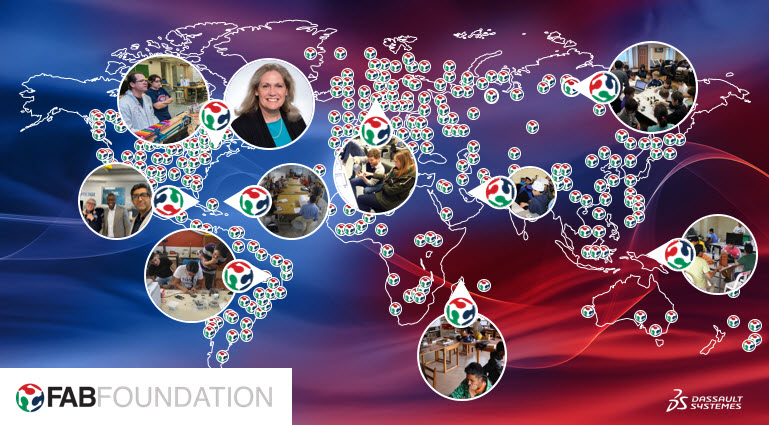
Inclusive Imagination for All
Fab Foundation is dedicated to making tools that are accessible to all makers, hobbyists, professional engineers, or anyone interested in upgrading their design skillset. Their mission is to provide financial means for those wanting to do so while making all tools and knowledge available to anybody, to better the world we live in. With many Fab Labs around the world helping to enable accessible learning for all, SOLIDWORKS announced the opening of the newest Fab Lab in Haiti.
SOLIDWORKS, along with Paul Altdoir, former ambassador of Haiti in the U.S, are working together to further the impact Fab Labs can have in the community of Haiti.
Another interesting announcement from Fab Foundation was the discussion of ‘self-replicating’ labs and the importance it has on reaching new areas.
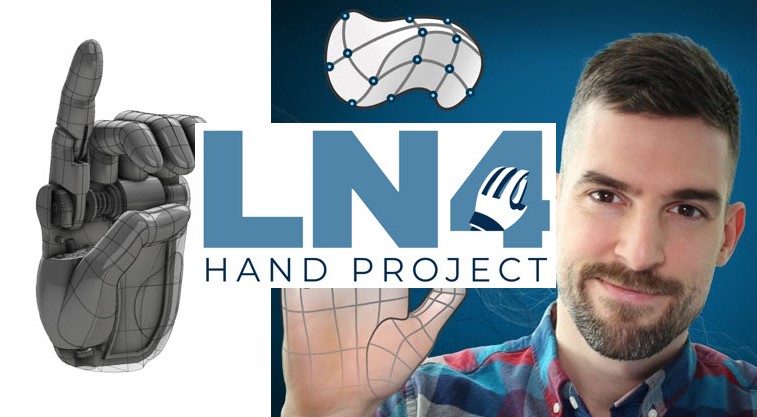
Technology Building a Better Future
Suchit shared the work SOLIDWORKS has done with the LN4 Foundation and Michael Mendonca to help provide free mechanical prosthetic hands to anyone who needs them, anywhere in the world. With this comes the announcement of ARM4ALL – a new contest that is encouraging students to design an elbow device. By holding this contest, they are helping to make a revolutionary difference. In the last 16 years, LN4 has distributed 60,000 prosthetic hands in 80 different countries. There are still more than 13 million people in the world who are missing a part of their arm.
To support this contest and help students design the device, SOLIDWORKS are providing a 3-week licence of 3D SOLIDWORKS to all students who enter. The findings of this competition will go towards making a huge change, moving forward what is being done in prosthetics.
Addressing the Manufacturing Skills Gap
3DEXPERIENCE World Sales Partner Manager, Michael Bruchli, led a debate on the topic of the Workforce Of The Future.
Together a panel of experts discussed the current issue surrounding a growing skills gap in the manufacturing industry today.
The skills gap is something that is affecting the industry right now, impacting supply chains, and will inevitability grow even bigger if action is not taken to help bridge this gap.
It was great to hear the experts recognising the importance of industry nurturing the future of STEM and engaging with schools to develop education around these fields.
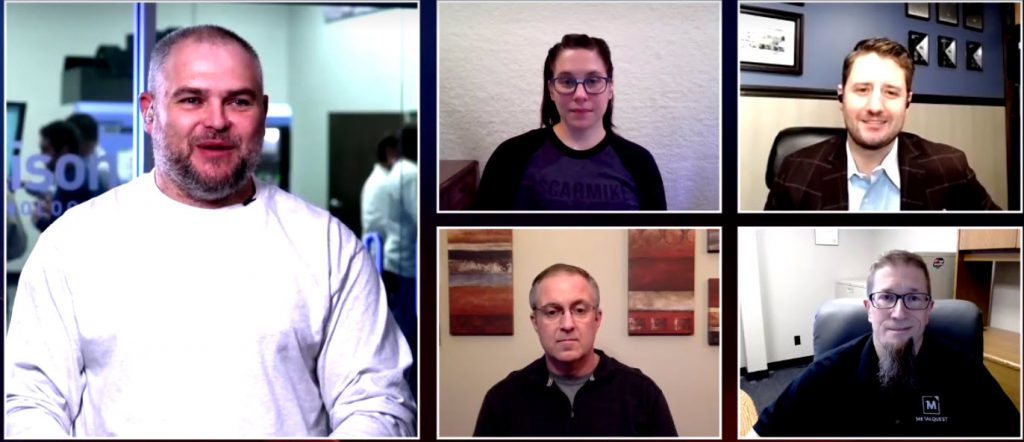
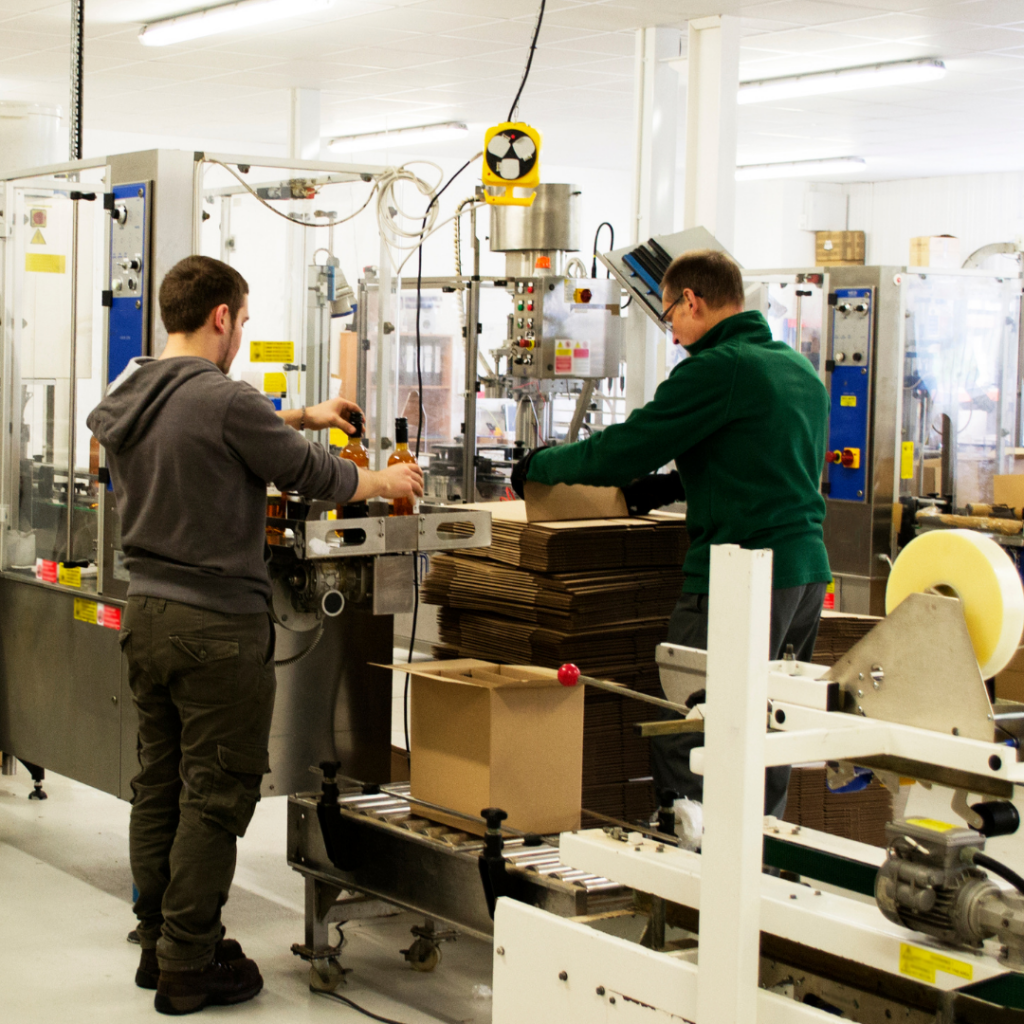
What is the Manufacturing Skills Gap?
The manufacturing skills gap refers to job positions within the manufacturing and engineering industry that are left open due to candidates not having the required knowledge, operational and highly technical skills to fulfil the needs of the role.
The problem revolves around young workers being unable to have the same knowledge and experience as their predecessors. Whether that is due to a lack of opportunity or exposure to these types of skills in a ‘hands on’ approach.
During the 3DEXPEREINCE World panel discussion, panellists highlighted just how important it is to make sure that the next generation and those to come are not lacking the skills required to bridge the gap the industry is facing today.
Scott Harms, President of MetalQuest, explained that essentially it comes down to the identity type that the manufacturing industry has at the moment. Scott explained how he thinks that one of the reasons for the skills gap is a lack of education towards the roles.
He shared that many people have negative perceptions of the manufacturing industry, describing roles as being viewed as ‘derogatory’.
In the discussion, it seems there is a strong emphasis on the lack of awareness of jobs in the industry being tech-based. Because of this, qualified candidates overlook roles.
A Starting Point
One way to begin decreasing the manufacturing skills gap is introducing children to what manufacturing and engineering is at a much younger age than it is currently.
This will allow them to see engineering in a different light from what they had seen it as before.
The extent of this is discussed during the panel, suggesting that it should start as young as primary/elementary school age. Although children at this age are not considering career options, Megan Ziemba, host of the Mavens of Manufacturing podcasts, explained that exposure to what manufacturing and engineering is will encourage early learning. There would be room for activities to be brought into the curriculum that help generate the soft skills required to gain interest and familiarity.
This is suggesting this early learning will instil a sense of familiarity towards learning these types of skills.
Building on those activities at higher levels, as students are going through school will help normalise ingraining manufacturing knowledge early and eventually eliminate the perceptions that Harms mentioned earlier in the panel about what the image manufacturing careers had on younger generations.
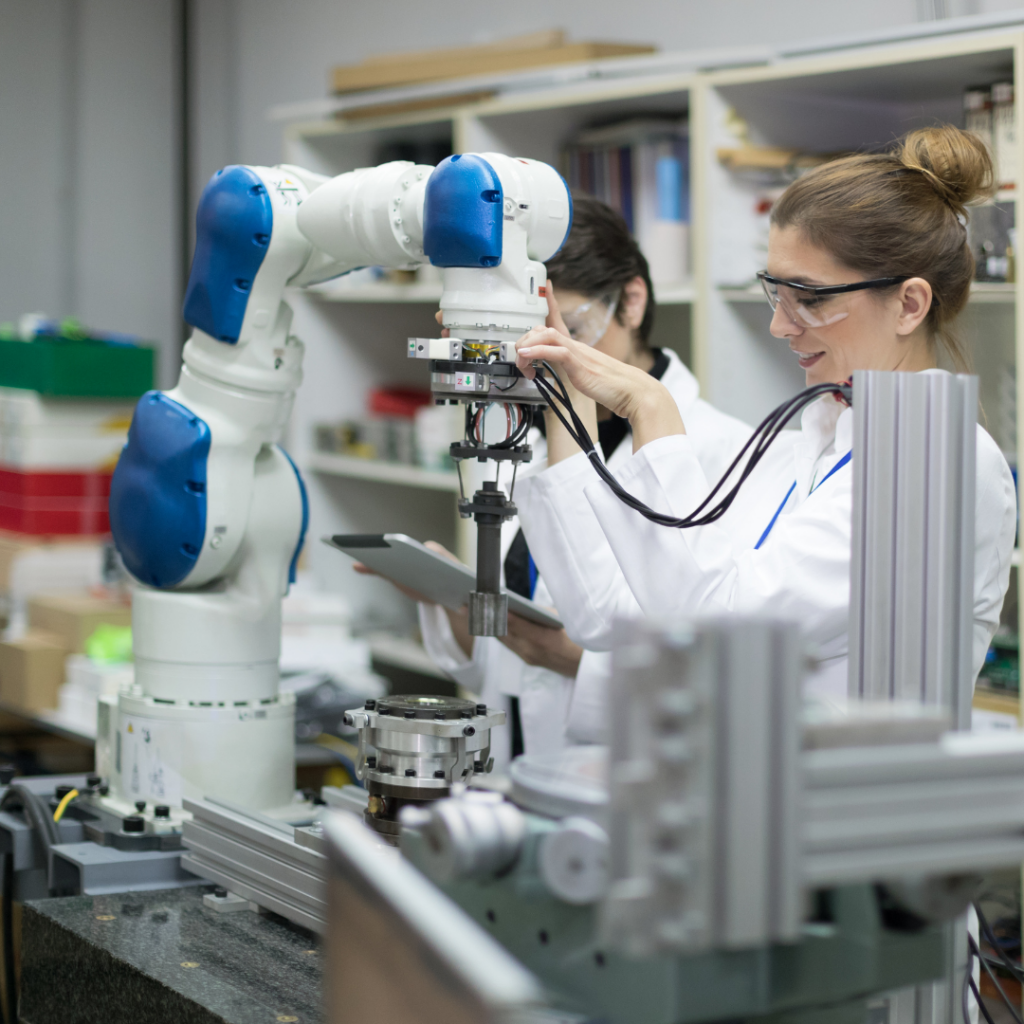
Jeff explained how his company, Northern Industrial Manufacturing, successfully campaigned for a bus route to be added to the local area close to their site. This has opened doors for both the company and the community. This connection to the community allows for more opportunities such as site tours and more casual visits, that would not have been easy easily accessible, or even possible before.
By companies doing things they have never done before and putting themselves out there, it will allow students to see what options are available to them and engaging with companies will teach them exactly what skills are expected from them.
Leveraging Technology
The skills gap closing is a ‘long game approach’, which takes efforts from a number of different parties involved throughout a students’ life, including teachers, curriculum boards, parents, manufacturing companies and individual teams within these firms.
Scott Volk highlighted the importance of how all these groups have to become engaged and work hand in hand to bridge the skills gap. As he so rightly puts it, it all starts with the planting of the seeds.
In a report on Bridging the Manufacturing Gap, Deloitte wrote that the increasing use of technology and automation across industries like manufacturing and construction will give rise to both great advances and a growing mismatch between the supply of labor and demand for skills.
To address this skills gap and achieve the most positive outcome for companies, workers, and society as a whole, we must understand how to help the workforce leverage new technological tools and adapt to the changing nature of work, particularly those workers who have specialised job skills but not a traditional four-year degree.
DriveWorks Supporting STEM
As the debate at 3DEXPERIENCE World highlighted, closing the skills gap is the responsibility of everyone in the manufacturing industry. As a company, we’re committed to doing what we can to support education and invest in the future.
We work closely with students and academia to help support and nurture the future of STEM, enabling students to gain the right skills and knowledge they need to succeed in STEM careers.
We are huge advocates for STEM education. We teach students how to use DriveWorksXpress to give them the automation skills needed in a digital transformation focused manufacturing industry.
We regularly attend events to share our knowledge, inspire students and help them understand the opportunities available to them.
Every year we take on placement students and graduates across many disciplines, including engineering, welcoming them to our team. We nurture them and provide them with the training, learning opportunities and invaluable hands-on experience needed at the very beginning of their career.
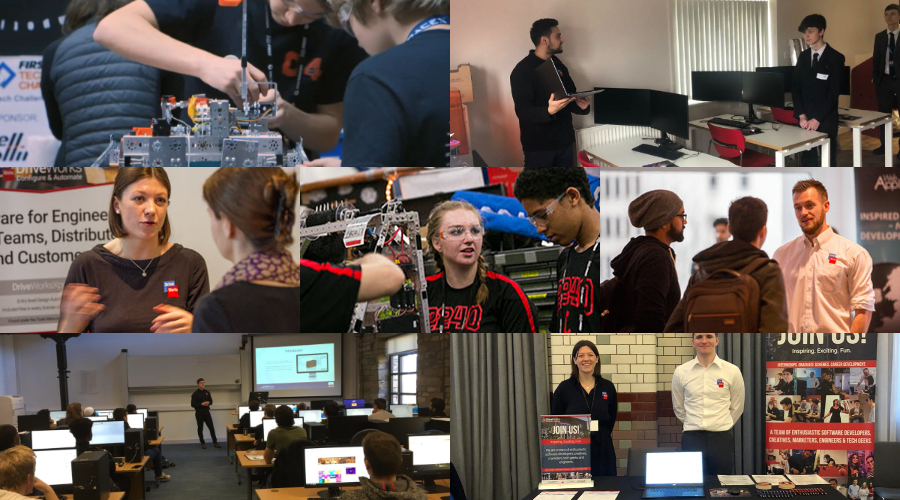
We also sponsor and work with FIRST Robotics and the SOLIDWORKS User Group Network, supporting students and users who are passionate, keen to learn new skills and share their own knowledge with others in the community.
Typically STEM careers have been pursued by males. Another way we can help bridge this gap is by encouraging more females into STEM. We actively encourage young women into STEM careers, teaching them about the vast array of opportunities available.
The final General Discussion of 3DEXPERIENCE World really highlighted how paramount it is to keep accessible technology within the community and the importance of sharing ideas for a wider benefit.
If you missed out on watching the General Session day 3, the highlights are available to watch below:
DriveWorks Learning Resources
Make the most out of the DriveWorksXpress learning resources that are free and available to everyone with SOLIDWORKS.